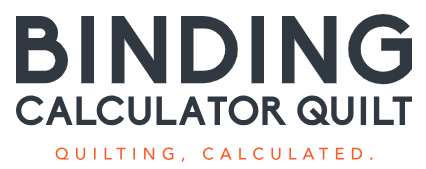Seam Allowance Guide
Master quilting seam allowances with interactive visuals, comprehensive charts, and a quick quiz. Learn how seam allowances affect your finished block sizes.
Understanding Seam Allowances: A seam allowance is the area between the fabric edge and the stitching line. The standard quilting seam allowance is 1/4 inch. Toggle between different seam allowances below to see how they affect your finished block size.
Visual Demonstration
Example: 5" cut square with 0.25" seam allowances (highlighted in orange)
Cut Size
5.000"
Size you cut fabric
Finished Size
4.500"
Size after sewing
The Formula:
Finished Size = Cut Size - (Seam Allowance × 2)
Example with 0.25" seam: 5" - (0.25" × 2) = 4.500" finished
Pro Tips
Chain Piecing
Feed multiple pieces through your machine without cutting threads between them. Saves time and thread!
Pressing Seams
Press seams to one side (usually toward darker fabric) for stronger seams, or press open for flatter quilts.
Nesting Seams
When seams are pressed in opposite directions, they "nest" together for perfect points at intersections.
Why Accurate Seam Allowances Matter
Consistent, accurate seam allowances are the foundation of successful quilting. Even small variations can compound across a quilt, causing blocks to mismatch and borders to not fit properly.
The standard 1/4 inch seam allowance is used throughout quilting because it provides a perfect balance between structural integrity and minimal fabric loss. Most quilting rulers and presser feet are designed specifically for this measurement.
Pro Tip: Invest in a 1/4" presser foot for your sewing machine. It will help you maintain consistent seam allowances automatically, making your quilting more accurate and enjoyable!
